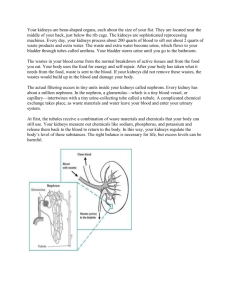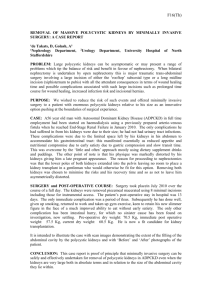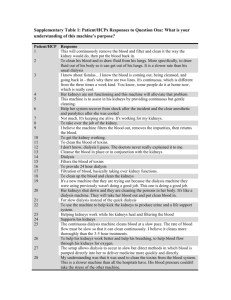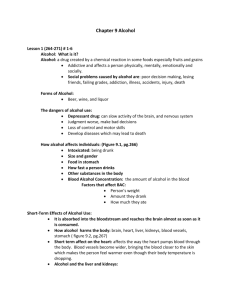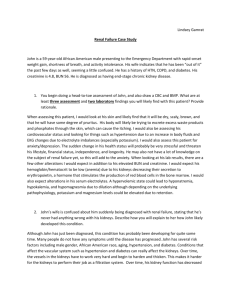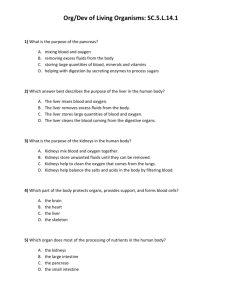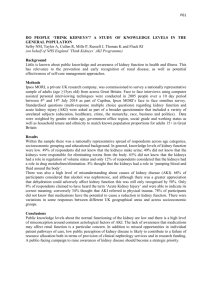Diabetes: Kidney Care
advertisement
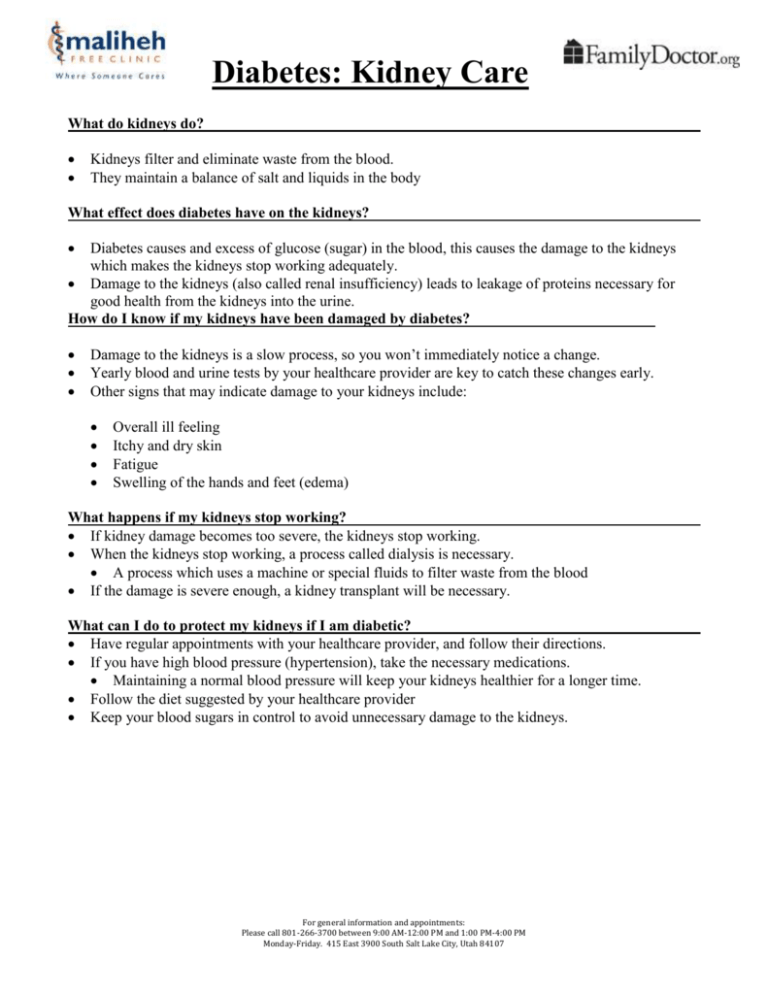
Diabetes: Kidney Care What do kidneys do? Kidneys filter and eliminate waste from the blood. They maintain a balance of salt and liquids in the body What effect does diabetes have on the kidneys? Diabetes causes and excess of glucose (sugar) in the blood, this causes the damage to the kidneys which makes the kidneys stop working adequately. Damage to the kidneys (also called renal insufficiency) leads to leakage of proteins necessary for good health from the kidneys into the urine. How do I know if my kidneys have been damaged by diabetes? Damage to the kidneys is a slow process, so you won’t immediately notice a change. Yearly blood and urine tests by your healthcare provider are key to catch these changes early. Other signs that may indicate damage to your kidneys include: Overall ill feeling Itchy and dry skin Fatigue Swelling of the hands and feet (edema) What happens if my kidneys stop working? If kidney damage becomes too severe, the kidneys stop working. When the kidneys stop working, a process called dialysis is necessary. A process which uses a machine or special fluids to filter waste from the blood If the damage is severe enough, a kidney transplant will be necessary. What can I do to protect my kidneys if I am diabetic? Have regular appointments with your healthcare provider, and follow their directions. If you have high blood pressure (hypertension), take the necessary medications. Maintaining a normal blood pressure will keep your kidneys healthier for a longer time. Follow the diet suggested by your healthcare provider Keep your blood sugars in control to avoid unnecessary damage to the kidneys. For general information and appointments: Please call 801-266-3700 between 9:00 AM-12:00 PM and 1:00 PM-4:00 PM Monday-Friday. 415 East 3900 South Salt Lake City, Utah 84107

